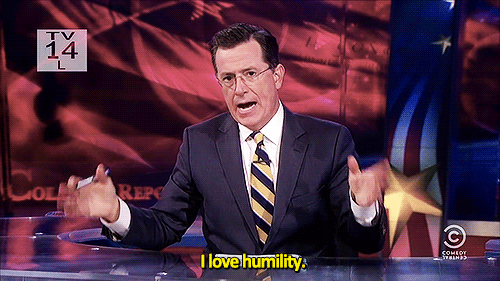A recent Aeon article highlights the importance of what Nathaniel has called “epistemic humility” and the dangers of overconfidence:
The internet and digital media have created the impression of limitless knowledge at our fingertips. But, by making us lazy, they have opened up a space that ignorance can fill. On the Edge website, the psychologist Tania Lombrozo of the University of California explained how technology enhances our illusions of wisdom. She argues that the way we access information about an issue is critical to our understanding – and the more easily we can recall an image, word or statement, the more likely we’ll think we’ve successfully learned it, and so refrain from effortful cognitive processing.
This lack of intellectual humility often leads to the trolling we see in online discussions:
Intellectually humble people don’t repress, hide or ignore their vulnerabilities, like so many trolls…People who are humble by nature tend to be more open-minded and quicker to resolve disputes, since they recognise that their own opinions might not be valid. The psychologist Carol Dweck at Stanford University in California has shown that if you believe intelligence can be developed through experience and hard work, you’re likely to make more of an effort to solve difficult problems, compared with those who think intelligence is hereditary and unchangeable.
One of the more exciting portions of the article is its discussion of the
Thrive Center for Human Development in California, which seeks to help young people turn into successful adults, is funding a series of major studies about intellectual humility. Their hypothesis is that humility, curiosity and openness are key to a fulfilling life. One of their papers proposes a scale for measuring humility by examining questions such as whether people are consistently humble or whether it depends on circumstances. Acknowledging that our opinions (and those of others) vary by circumstance is, in itself, a significant step towards reducing our exaggerated confidence that we are right.
The key takeaway, however, is the following:
Intellectual humility relies on the ability to prefer truth over social status. It is marked primarily by a commitment to seeking answers, and a willingness to accept new ideas – even if they contradict our views. In listening to others, we run the risk of discovering that they know more than we do. But humble people see personal growth as a goal in itself, rather than as a means of moving up the social ladder. We miss out on a lot of available information if we focus only on ourselves and on our place in the world (bold mine).
Most of my anxieties when it comes to research, writing, and learning are ultimately anxieties over my place in the social pecking order. I have a long way to go when it comes to learning intellectual humility.
